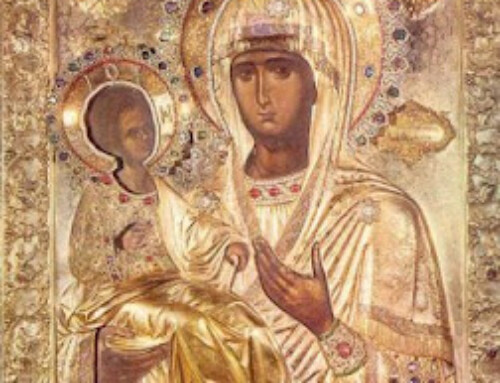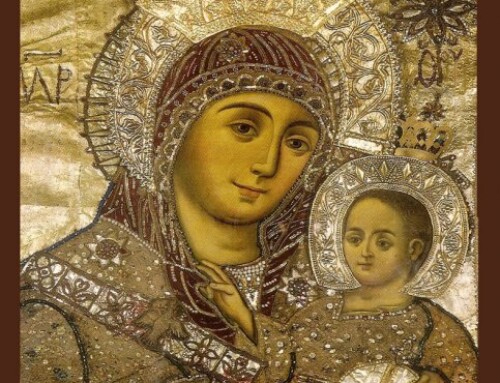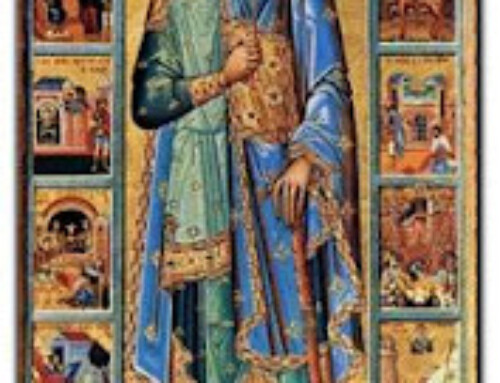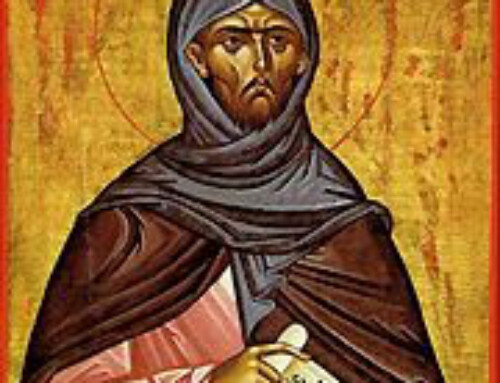Word Magazine September 2001 Page 16
SALVATION BELONGS TO
OUR GOD
By Very Rev. Stephen Rogers
St. Cornelius the Centurion
On the thirteenth day of September, we commemorate St. Cornelius the Centurion, the first Gentile to believe in Christ. In the tenth chapter of Acts, we learn that Cornelius was centurion of the Italian Regiment of the Roman army, which was based in Caesarea, a seaport 25 miles north of Joppa. Cornelius was a “fearer of God,” a formal designation for a Gentile who, while following the precepts of the Jewish religion, was not a proselyte or full convert. We are told Cornelius was a devout man who generously gave alms to the poor and “prayed to God always.”
One day as Cornelius was praying, an angel appeared to him announcing that his prayers and alms “have come up for a memorial to God” (v. 4). The angel then instructed Cornelius how to find the Apostle Peter. As men were being sent by Cornelius to find the Apostle, Peter himself was experiencing a vision from God that instructed him to listen to the approaching men. This led Peter to travel to Caesarea to meet Cornelius and those with him; it also led to the revelation that the apostle’s vision was God’s instruction to receive Gentiles into the Church. Peter announced, “In truth I perceive that God shows no partiality, but in every nation whoever fears him and works righteousness is accepted by Him” (vv. 34-35).
Cornelius and his household were baptized and later Cornelius became a fellow missionary with Peter. In the city of Scepsius, he brought down the pagan temple by his prayers. Cornelius baptized about 300 souls that day and shortly thereafter converted the whole city. Having completed his work on earth, Cornelius heard a voice from heaven saying, “Come to Me, for I have prepared a crown of righteousness for you.” Cornelius then prayed, and surrendering his spirit, was taken to heaven.
Let us reconsider our introduction to this great saint of God. We are told in Acts that he wasn’t a Christian, wasn’t a Jew, but was a devout man worshipping God as sincerely as he could with the knowledge that he had. We are told this was pleasing to God who in His mercy led the Apostle Peter to Cornelius that he might hear the saving gospel of Jesus Christ, for God “shows no partiality.” Because of Cornelius’ desire to be a righteous man, God, “who desires that all men be saved,” led him to salvation in Jesus Christ.
Oftentimes, we look at other people and are quick to judge them. In our self-righteousness, we dare to question their faith or spirituality because they aren’t doing exactly what we think they should. We consign them to hell in our minds because they don’t believe what we believe or do what we do.
Make no mistake about it, the words of the Apostle Peter in Acts 4:12 are true: “Nor is there salvation in any other, for there is no other name [than Jesus] under heaven given men by which we must be saved.”
Man is not free to believe whatever he chooses, but God in His mercy can lead whomever He wishes to salvation. Did He not save the thief on the cross at the last moment of His life? Did He not save the Apostle Paul, a murderer of Christians?
We must stand for the Truth, the one name under heaven by which men are saved; but let us judge no man. If Peter had brushed off Cornelius as a “non-believing Gentile,” the church would have lost a great saint, bishop and converter of the lost. Before we label anyone, before we judge him or her because they are different from us, let us remember Cornelius, whose desire to be a devout man did not save him, but led him to the knowledge of Jesus Christ which did.
In the Book of Revelation, St. John writes in the seventh chapter: “After these things I looked, and beheld a great multitude which no one could number of all nations, tribes, peoples and tongues, standing before the throne and before the Lamb clothed with white robes, with palm branches in their hands and crying out with a loud voice saying, ‘Salvation belongs to our God who sits on the throne and to the Lamb’ “ (vv. 9-10).
As we encounter others along the way, let us never judge, but let us pray for their and our salvation. Let us remember Cornelius, that “devout man,” on whom God had mercy.





